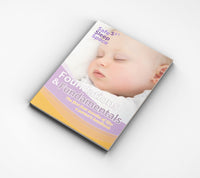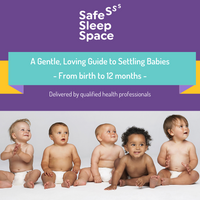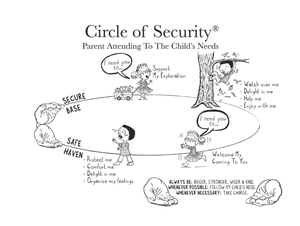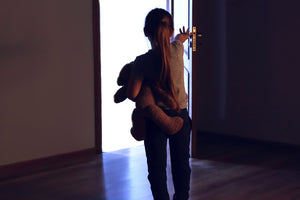Baby Sleep Patterns

It is completely natural for a baby in the first months of life to have variable sleep patterns, which include many sleeps of 2-3 hours and occasional longer ones. Often no real pattern is seen until about 4 -5 months, and when you finally see a predictable pattern, it changes.
Small babies need to wake so they can feed often because their tummy capacity is so small. The majority of babies wake, feed and return to sleep at least 2 to 4 times overnight, which they need to do.
Difficulties can occur if you try to hurry babies into longer sleeps, because it causes distress for the baby and the entire family, and often makes little difference in the long run.
Eventually most babies around 5 to 6 months of age will feed maybe once or twice overnight and return quite quickly back to sleep. If this is happening, it is likely this little babe is progressing very normally and will eventually stop feeding spontaneously overnight without needing any ‘training’.
A literature review in 2013 found that babies had similar sleep patterns at 6 months of age whether they did or did not undergo sleep training prior to that time. That is, babies will naturally develop sleeping patterns so there is just no need for the distress associated with hurrying what is a naturally occurring process.
There are times to look at making change especially if your baby is waking many times at night and is distressed and not able to settle back to sleep. In this instance it might make sense to reach out for some assistance.
Guiding babies and supporting them in drifting to sleep can be done in a kind way that helps them move from frequent, long, distressed overnight wakings and often short day time naps to healthier sleep patterns.
Take home message; baby sleep IS irregular; sometimes short and occasionally longer sleeps and over time this sleep naturally progresses to longer sleeps around 5 to 6 months but it is still very normal for a baby to wake overnight for a feed at this age. Don’t rush to ‘fix’ something that is not broken. Only consider guiding your baby to changed patterns if their sleeps are very short and distressing for them.
Please don’t consider controlled crying as the only option for your family, and please please don’t sleep train babies who are going to get to where you want, quite naturally, over time.
Help with looking after your baby
The NourishBaby - Guide to Babies - is an online program that you can view in your own time. The Guide to Babies helps you to understand and care for your baby and covers key milestones, sleep and settling advice and baby development. There is a section on real parents sharing their experience of adjusting to parenthood.
Many parents have reduced sleep when a new baby arrives. The Safe Sleep Space website has a variety of resources and supports to provide tips and advice on how to assist your baby with sleep. You can also book a phone consultation to speak with a Sleep Consultant.
Other blog posts you will find helpful:
When is it time to get help for my child's sleeping?
Why is infant mental health so important when it comes to sleep?
Amber beads. Why they're really not a good idea.








